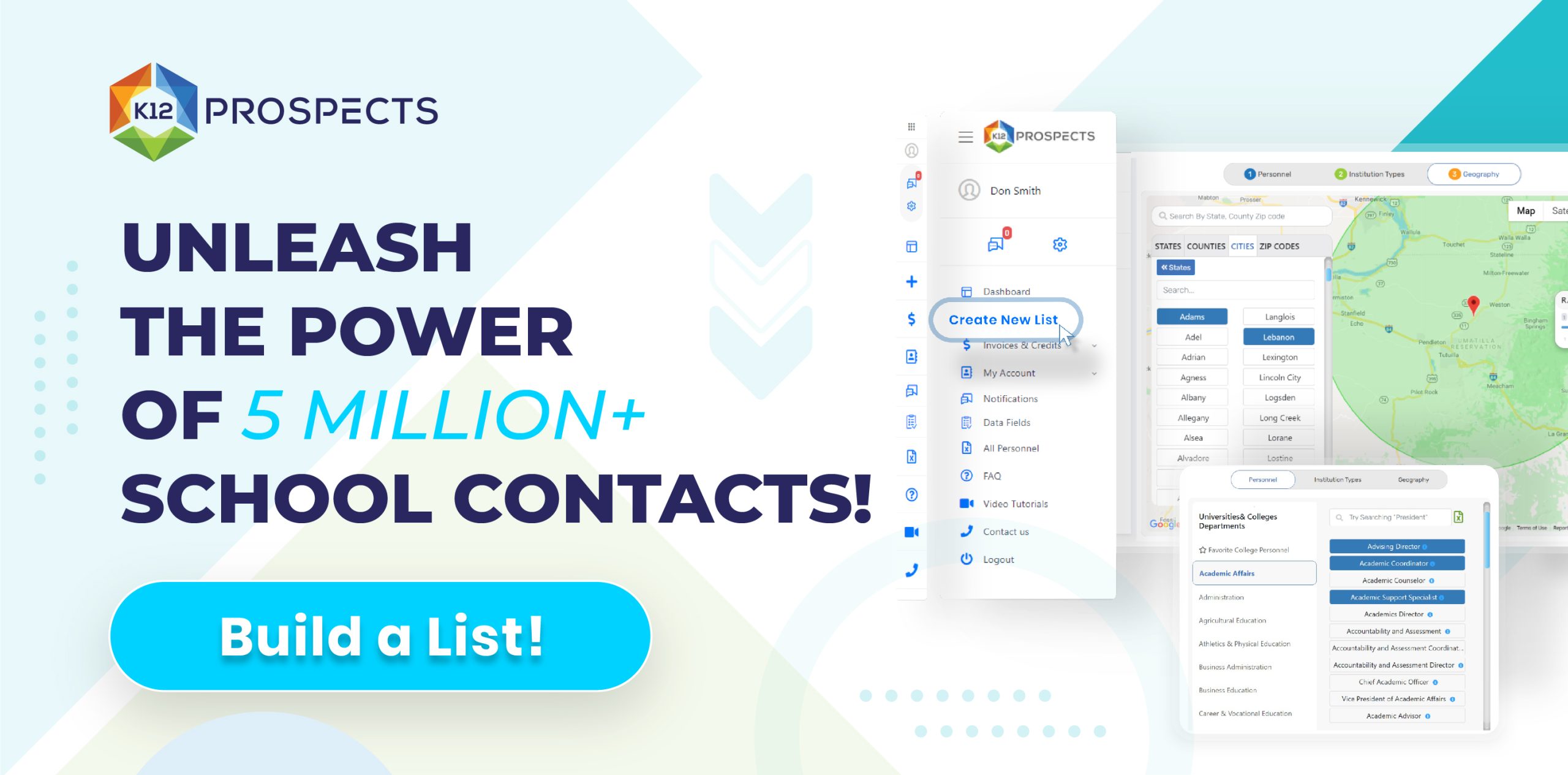How to Build Long-Term Relationships with Schools and Districts

Selling to schools isn’t just about making a one-time sale; it’s about fostering long-term partnerships that lead to repeat business, referrals, and stronger brand loyalty. Schools and districts value vendors who demonstrate reliability, a commitment to student success, and ongoing support. To establish these lasting relationships, vendors need to go beyond a transactional approach and prioritize trust, communication, and continuous engagement.
School administrators, procurement officers, and educators are constantly seeking solutions that align with their evolving priorities. Vendors who understand these priorities and tailor their approach accordingly will stand out in a competitive market. By positioning themselves as partners rather than just service providers, vendors can build credibility and ensure their solutions remain relevant year after year.
Building Strong, Lasting Relationships with Schools
Providing Continuous Value and Support
A relationship with a school or district doesn’t end after the first sale. Schools want vendors who provide ongoing support to ensure that their investment continues to deliver value. Whether it’s through training sessions, product updates, or hands-on customer service, continuous engagement is key to maintaining long-term partnerships.
One of the best ways to strengthen relationships is through proactive communication. Regular check-ins allow vendors to address any concerns early, gather valuable feedback, and offer solutions before issues escalate. Schools appreciate vendors who stay involved and show a vested interest in their success.
How to Implement This Strategy:
- Schedule quarterly follow-ups with schools to assess satisfaction and address any concerns.
- Provide ongoing professional development and training to help educators maximize the use of your product or service.
- Develop a dedicated support team that ensures quick and effective responses to school inquiries.
Aligning with School Priorities and Goals
Schools operate with clear objectives, whether it’s improving student performance, increasing digital equity, or streamlining administrative processes. Vendors who align their offerings with these goals are more likely to maintain strong partnerships over time. This requires staying informed about district initiatives, curriculum changes, and funding cycles.
Understanding the unique challenges faced by each school or district can help vendors offer solutions that directly contribute to their success. Customizing products or services based on school needs will demonstrate flexibility and commitment, making a vendor more attractive for long-term collaboration.
How to Implement This Strategy:
- Research district priorities and tailor your offerings to meet their needs.
- Stay updated on legislative changes, funding opportunities, and curriculum shifts that impact procurement decisions.
- Offer flexible solutions that can be adapted to evolving school requirements.
Engaging Beyond the Sales Process
One of the biggest mistakes vendors make is limiting engagement to the sales cycle. Schools are more likely to trust vendors who invest time in their communities and demonstrate an understanding of the education landscape. Vendors who participate in school events, education conferences, and professional development opportunities position themselves as industry leaders.
Developing relationships with educators, school board members, and administrative staff can lead to valuable insights and referrals. Schools prefer to work with vendors who are actively involved in the education space and demonstrate a genuine interest in student success.
How to Implement This Strategy:
- Attend and sponsor education conferences, trade shows, and networking events.
- Offer free webinars, training workshops, and resource guides to support educators.
- Engage with school leaders on professional social media platforms and through community outreach programs.
Helping Schools Navigate Budget and Funding Challenges
Budget constraints are one of the biggest hurdles schools face when making purchasing decisions. Vendors who proactively help schools secure funding will be seen as valuable partners. Many schools rely on grants, federal programs, and alternative funding sources to afford new products and services, so understanding these opportunities is essential.
Rather than assuming schools have the budget for your offering, help them identify and apply for funding that aligns with their needs. Providing case studies that demonstrate how other districts have successfully funded similar purchases can also be a powerful tool.
How to Implement This Strategy:
- Educate schools on available grants and assist them in the application process.
- Offer phased implementation plans or flexible pricing models to accommodate budget constraints.
- Develop partnerships with funding organizations that support school initiatives.
Demonstrating Long-Term Commitment
Schools want to work with vendors who are in it for the long haul. Building loyalty requires showing an ongoing commitment to a school’s success through continuous improvement, responsive customer service, and adaptability. Vendors who view their relationship with schools as a long-term investment rather than a short-term transaction will be more successful in maintaining lasting partnerships.
Long-term commitment also means being open to feedback and making necessary improvements. Schools value vendors who listen to their concerns and make adjustments to meet their evolving needs.
How to Implement This Strategy:
- Establish a long-term roadmap for working with each school and communicate it clearly.
- Introduce contract renewal incentives or loyalty programs that reward continued partnerships.
- Regularly solicit feedback and use it to enhance your product or service offerings.
Best Practices for Strengthening School Partnerships
- Be Proactive: Reach out to schools regularly to offer support and gather feedback.
- Stay Flexible: Adapt your offerings to meet the unique and changing needs of schools and districts.
- Build Relationships at All Levels: Engage not only with procurement officers but also with teachers, IT staff, and district leaders.
- Showcase Impact: Provide measurable results that demonstrate how your product or service benefits schools and students.
- Prioritize Excellent Customer Service: Quick, reliable support builds trust and encourages long-term partnerships.
Conclusion
Long-term success in the K-12 market depends on building relationships, not just making sales. Schools and districts want vendors who are reliable, engaged, and committed to helping them achieve their goals. By consistently providing value, aligning with school priorities, engaging beyond the sales process, assisting with funding challenges, and demonstrating long-term commitment, vendors can establish strong, lasting partnerships. When schools view a vendor as a trusted partner rather than just another provider, they are more likely to renew contracts, refer new clients, and invest in additional services—leading to sustainable business growth in the education sector.



